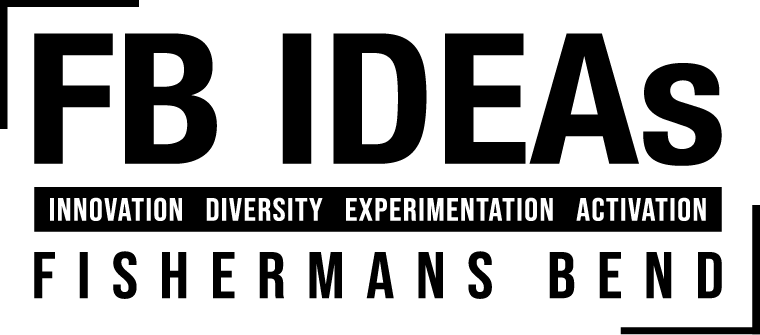Circular Economy innovations in Fishermans Bend
Earlier this week, we held our first event to showcase some of the circular economy innovations already being researched, tested, and developed in Fishermans Bend. It was a great opportunity to bring people together, make connections and explore how we make FishermansBend the place to collaborate, experiment and trial innovation during this period of transition and transformation.
Nicky Stecca from Circular Economy Victoria set the scene with the sobering reminder that every year 100 billion tonnes of virgin material are extracted, yet only 7.2% of that is recycled. Whilst we want that % to go up, the real aim of circular economy approaches is to reduce the amount of virgin materials extracted and keep them and the products they make in use as long as possible though applying circular thinking to innovation and new business models at all stages - design, production and manufacturing, distribution, repaid and reuse and resource recovery.
Jaimi Harrison from NTRO - National Transport Research Organisation shared insights from the work they do to test the applications and material performance of recycled materials in our road network. Some examples she gave were the use of recovered carbon black and crumb rubber (from recycled tyres) in sprayed seals and asphalt, or reclaimed paint as a dust suppressant. Central to their approach is making sure materials are used at their highest possible value, ensuring it does not reduce material performance and durability of the roads, and that it doesn’t make recycling more difficult when the material is at end-of-life. They also focus on starting local with key partners and sourcing local materials, but aiming for state and national impact through research that informs specifications for procurement.
Nigel Murphy and Andrew Wells from Earth Systems talked about the biochar technology they have developed called CharMarker CPP. Using a pyrolysis process, the technology converts biomass waste (like offcuts from forestry, horticulture and agriculture) into charcoal-like substance which can be used to increase water and nutrient holding capacity and plant growth in horticulture applications. They have even run trials using the technology to convert soiled nappies into biochar with great success. As Nigel explained, the technology has 3 key benefits: it provides a solution for a biowaste, reduces greenhouse emissions by capturing carbon and it creates jobs and commercial opportunities in a rapidly growing international sector. The technology was developed here in Fishermans Bend and is now exported around the world, and they recently set up the Lysterfield Biochar Facility with Yarra Ranges Council at the Lysterfield Waste Transfer Site.
And of course - it’s all about collaboration. Celebrating success together, sharing learnings and building collective voice to support innovation and commercialisation in the cleantech sector in Australia - and Fishermans Bend.
On that note….
Event partner Victorian Cleantech Cluster are currently developing a comprehensive industry roadmap aimed at supporting the development of Victoria's clean economy and they want your insights and expertise to help driving cleantech innovation and commercialisation within the state. For more information and to fill out their survey check out their website.
NTRO are hosting ‘Transport Beyond Certainty’ from 25-27 October here in Fishermans Bend, an International Technical Conference for the transport industry. For more information go to the conference website.
Special thanks to our speakers, and for everyone that joined us for this lively discussion. We hope to see you at the next one!




